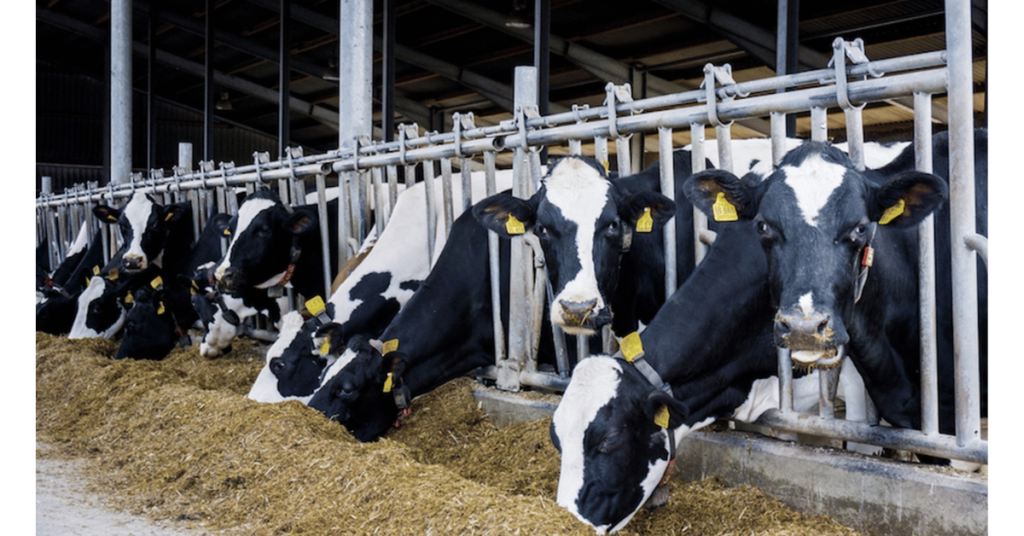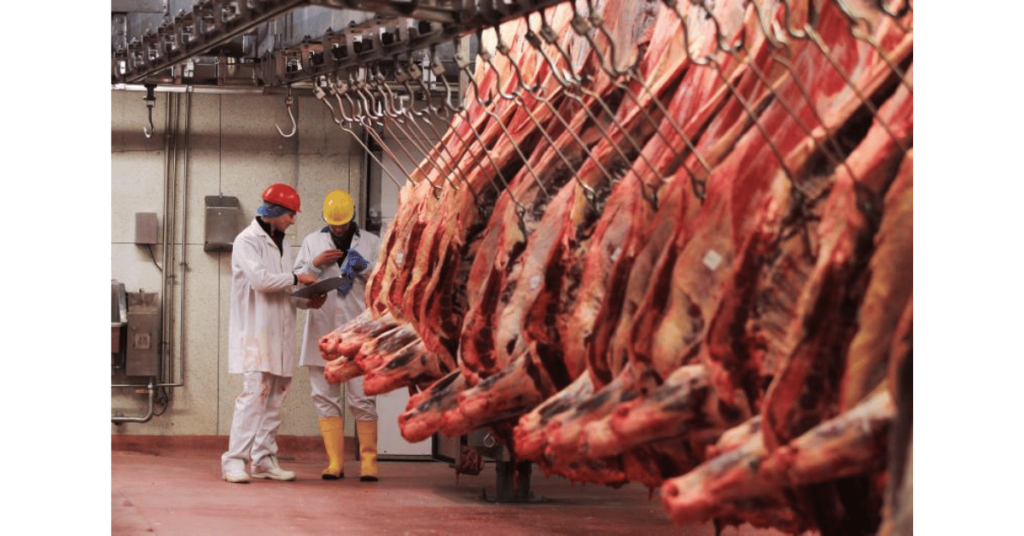Eating Plants vs Eating Animals: A Comprehensive Guide

Introduction
People are talking more about plant-based and animal-based diets because of health concerns.
With South Africa’s vast farming, including dairy, the debate is critical.
The number of individuals embracing different dietary lifestyles is increasing. Understanding how food choices affect our health and well-being is essential.
Eating plants or animals for nutrition isn’t just about personal preference. It also holds profound implications for our bodies and the environment. Some people believe eating animals is essential for nutrients and proteins. But, some believe a plant-based diet reduces the risk of chronic diseases.
This article looks at people’s difficulties when choosing between these two diets. Eating plants vs eating animals.
We will look at how each option affects our health and the planet.
When we make better choices about what we eat, it’s essential to understand this debate. Let’s examine how eating plants and animals differs and find the main issue.
The Health Benefits and Concerns of a Plant-Based Diet
Health Benefits of Plant-Based Diets
Many people are now interested in a plant-based diet because it is very healthy. Adopting a vegan or plant-based lifestyle can impact health and well-being.
A diet with plants can help prevent heart disease and cancer. It also helps with high blood pressure. Plant-based diets have lower amounts of saturated fats and cholesterol. But they have higher levels of fibre, vitamins, minerals, and antioxidants. This mix helps your heart and organs work well and stay healthy.
A plant-based diet can also help in weight management and promote healthy digestion.
Plant-based foods contain fewer calories than animal products, aiding in weight management. Fruits, vegetables, whole grains, and legumes have lots of fibre. Fibre helps digestion and makes it easier to poop.
Plant-Based Protein Sources
Concerns surrounding plant-based diets revolve around obtaining enough protein intake. Yet, plenty of plant-based protein sources are available to meet daily requirements. If you eat plants, you can get protein from tofu, tempeh, lentils, beans, quinoa, nuts, and seeds.
Adopting a plant-based diet or eating more plant-based meals has clear health benefits. Ensuring variety and balance is essential in meeting nutritional needs. If you have questions about your diet, talk to a healthcare professional or dietitian. They can help you figure things out.
To sum up, choosing a plant-based diet has lots of health perks. These include lower chances of chronic illnesses and better weight control.
Including various plant proteins in meals can support a sustainable diet and well-being. While at the same time enjoying the positive impact on their well-being.
Essential Nutrients Found in Plants That Support Health and Well-Being
Plant-Based Nutrients
Plant-based nutrients are an essential part of a healthy and well-balanced diet. Fruits and vegetables boast of vitamins, minerals, and antioxidants. Phytochemicals help us stay healthy.
Consuming plant-based nutrients has a significant advantage: they have many essential vitamins. Fruits and vegetables give vitamin C, which helps our immune system and skin.
Spinach and kale boost vitamin K, which is essential for blood clotting and bone health.
Essential Minerals From Plants
Plants have many essential minerals for our body besides vitamins. Legumes, such as lentils and chickpeas, give us iron. Iron helps transport oxygen in our bodies. You can get calcium from plant sources to strengthen your bones and teeth. Examples include broccoli or fortified plant-based milk alternatives.
Plants have many antioxidants that protect our cells from harmful free radicals. You can find these antioxidants in colourful fruits such as berries. They are also in vegetables like tomatoes. Eating these foods reduces the risk of heart disease and cancer.
To stay healthy, we should eat foods with plant-based nutrients. These nutrients give us vitamins, minerals, and antioxidants. We should eat colourful salads and add fruits to our meals to support our well-being.
Addressing Common Concerns About Nutrient Deficiencies in a Plant-Based Diet
Nutrient Deficiencies in Plant-Based Diet
Addressing common concerns about nutrient deficiencies in a plant-based diet
Many people now eat plant-based food, but some need help getting enough nutrients.
In defending animal protein, they even exaggerate the benefits. With careful planning, you can get all the essential nutrients from a plant-based diet.
Meeting Nutritional Requirements on a Plant-Based Diet
One of the primary concerns often raised is the adequacy of protein intake. At the same time, animal products are high in protein. Many plant-based sources can provide ample amounts of this essential macronutrient. Vegans can get protein from legumes. Legumes like lentils, chickpeas, beans, tofu, tempeh, and seitan. People can add nuts, whole grains, vegetables, and fruits to meet their protein needs.
Another concern is obtaining enough vitamins and minerals found in animal products. Vegans can get all the necessary vitamins and minerals from different plant foods. They don’t need to rely on animal sources.
Leafy greens like kale and spinach contain iron. Citrus fruits give vitamin C, which helps the body absorb iron. Nuts and seeds offer healthy fats and essential minerals such as zinc.
Omega-3 fatty acids are often associated with fish consumption. Plant-based sources can also provide Omega-3 fatty acids. Sources include flaxseeds, chia seeds, hemp seeds, and walnuts. These fatty acids facilitate brain health and cardiovascular function.
Finally, vitamin B12 is an essential nutrient naturally found in animal products. Vegans need enough B12 from fortified foods or supplements to avoid deficiency.
To choose healthy food, eat plant-based foods that provide the necessary nutrients. Individuals can address any concerns about nutrient deficiencies on a plant-based diet. By planning and knowing, you can meet all your nutritional needs as a vegan.
The Environmental Impact: How Our Food Choices Affect the Planet
We need to consider how our daily choices affect the environment in today’s world. These choices include what we eat.
Environmental Impact of Animal Agriculture
One area that deserves our attention is the impact of animal agriculture on the planet. Meat production creates a large carbon footprint, adding to greenhouse gas emissions.
Carbon Footprint of Meat Production
Animal farming releases large amounts of methane and nitrous oxide, potent greenhouse gases. These gases contribute to climate change.
Research has found that meat production creates more carbon emissions than other foods. Meat production involves raising and preparing animals and delivering and selling meat products.
By being mindful of our diet and eating less meat, we can help the environment to reduce greenhouse gas emissions from animal farming. You better opt for plant-based foods or follow a flexitarian or vegetarian diet.
Promoting sustainable farming and responsible land use is critical. Sustainable agriculture can reduce the environmental impact of our food choices. We can support local eco-friendly farmers. And by so doing, promote regenerative farming to create a sustainable food system.
We must recognize the link between our food choices and their environmental impact.
To make the future healthier. We must learn how raising animals for meat harms the environment.
Comparing Greenhouse Gas Emissions Between Animal Farming and Plant-Cultivation
Carbon Emissions From Livestock Farming vs Crop Production
Comparing animal farming and plant cultivation helps us understand greenhouse gas emissions. Raising animals and growing crops produce carbon emissions. Carbon emissions harm the environment and sustainability.
Raising animals on big farms for food creates a lot of greenhouse gases. Raising animals for meat and dairy produces methane. Methane is a potent greenhouse gas. A gas that warms the Earth more than carbon dioxide. The production and distribution of animal feed also contribute to carbon emissions.
Plant cultivation generally has a lower carbon footprint compared to animal farming. Growing crops for human consumption or biofuels requires less land and energy. Raising animals for food requires more biofuels. Plants are vital because they absorb carbon dioxide and help with climate change.
Not all plant-based farming is the same when it comes to the environment. Farmers significantly impact farming’s carbon emissions by changing how they use land. The way they cut trees and use artificial fertilizers.
In conclusion, relying less on intensive livestock production could benefit the environment. Reducing livestock farming helps the environment when compared to growing plants. We can shift to sustainable agriculture and promote plant-based diets. This shift will reduce carbon emissions from food production. A plant-based diet helps mitigate climate change.
Land Use and Deforestation: The Role of Animal Agriculture in Habitat Destruction
Deforestation for Livestock Grazing vs Land Cultivation for Crops
Deforestation and its connection to animal agriculture deserve our attention. As more people want meat and animal products, we need more land for animals to eat. Unfortunately, this has led to significant deforestation in many parts of the world, including South Africa.

Unsplash/Ales Krivec
Clearing forests for raising livestock destroys habitats. And this forest clearing leads to greenhouse gas emissions and climate change.
Growing crops on land produces food sustainably without causing deforestation.
We must understand how animal farming harms habitats and find ways to lessen its impact. We can support sustainable farming. We can use fewer animal products to create a greener future. This way, we optimize land use without harming our ecosystems.
Ethics and Animal Welfare Considerations in Food Choices
We worry about the ethics and animal welfare of the meat we eat. People realize that what they eat affects animals, the environment, and their health. This concern about animal welfare has led to more discussions about animal rights and welfare.
Eating meat brings up ethical concerns about how farm animals are treated. The way farmers treat animals on factory farms worries people. They keep them in small spaces and use cruel methods. Animals raised for food often live in conditions that limit their natural behaviours. These conditions cause unnecessary pain.
Also, we must think about ethics and treating all living beings with value and respect. Advocates believe that we should treat animals ethically. Animals can feel pain, pleasure, fear, and joy. This perspective challenges the notion that animals are mere commodities for human consumption.
People concerned about these issues can eat more plants or ethically raised meat. Switching to plant-based diets helps protect animals and the environment. Plants help reduce greenhouse gas emissions and land use linked to raising animals.
Choosing what to eat depends on personal preferences, health, and situation. Let’s talk about how our food choices impact animals and the environment.
Factory Farming Practices: Unveiling the Reality Behind Mass Meat Production
Cruelty to Animals in Factory Farming

Source/Food Matters
How factory farms treat animals has caused ethical concerns and controversy. Mass meat production has a hidden dark side that most consumers don’t know about.
We cannot ignore the pressing issue of cruelty to animals in factory farming. These facilities have cramped living conditions and lack access to natural environments. They also use hormones and antibiotics, which are inhumane practices.
As people care more about the food they eat, we need to address the treatment of animals in factory farms. People should learn about the truth of mass meat production to make better choices.
Ethical Concerns in Meat Production

Source/Irish Farmers Journal
It is crucial for us as a society to question these practices and advocate for change. We can do two things to create a kinder and more ethical food system. First, we can support local farmers who care about animals. Second, we can choose plant-based food instead.
Let’s learn the truth about factory farming and make meat production more humane.
Alternative Approaches: Exploring Ethical Ways of Sourcing Animal Products
It is important to consider ethics when sourcing animal products in today’s world. Exploring alternative approaches is crucial. We must use sustainable and humane farming practices that reduce animal suffering. As we do so, we’ll meet the demand for animal products.
Sustainable and Humane Animal Farming Practices
We can raise animals in a healthy environment by using sustainable farming methods. This environment will support their well-being. We must give them enough space to move around to care for them properly. And to eat healthy food, drink clean water, and see a vet. Sustainable farming limits antibiotics and hormones to protect animals and consumers from harm.
Reducing Animal Suffering
Humane farming methods focus on the welfare of animals throughout their lives. We should avoid oppressing animals. For example, we shouldn’t keep them in small spaces or cause stress and pain. Instead, we emphasize providing the animals with a comfortable and natural environment.
By looking at ethical ways to get animal products, we can help animals and the environment. Supporting farmers who focus on these practices helps animals and the planet.
In conclusion, we should think about different ways to get animal products. We can help reduce animal suffering by supporting sustainable and humane farming practices. This way, we can still enjoy responsibly sourced animal products.
Conclusion
To summarise, making informed choices for a healthier, sustainable future is essential. When we make choices, we must consider the environment, ethics, and well-being.
It’s essential to learn about the things we buy and the things we support. These things include understanding our food’s origins and the environmental impact of our energy sources. We can help the environment by supporting eco-friendly businesses as informed consumers.
Each choice we make impacts the world around us. We can create a better world by making intelligent choices for our health and the future. Let us build a future where sustainability is an option and a way of life.
